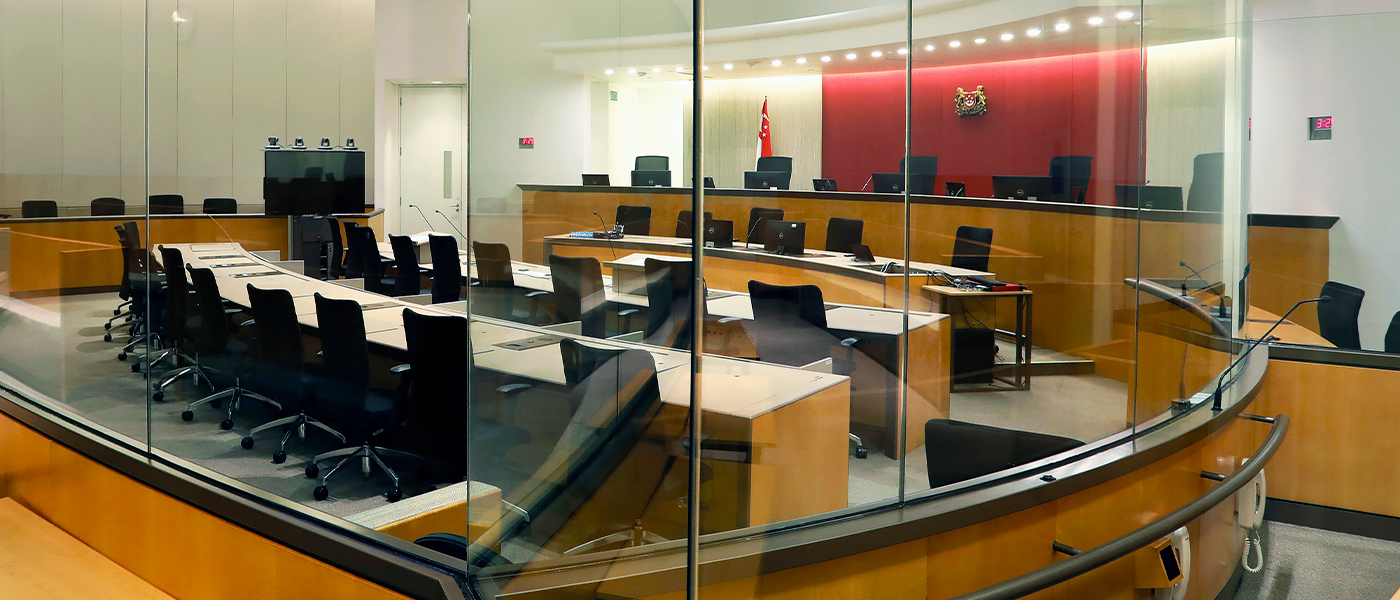SIGNIFICANT CASES FROM THE SUPREME COURT

The Court of Appeal laid down definitive guidance that lack of consent would generally not be available as an unjust factor in cases where an alternative and established cause of action was already available to the plaintiff concerned. An unjust enrichment claim also cannot be founded on lack of consent as an unjust factor in situations where the defendant is entitled by law to retain the property or value transferred, or where the transfer of the property or value in question was legally valid. The Court of Appeal also expressed a provisional view that the principle of international comity ought to apply to bar claims not only in contract but also in unjust enrichment, where such claims involve the contravention of the laws of a foreign country, and that there are merits to the view that the principle should also extend to defences to claims in unjust enrichment.
This was the first time the Court of Appeal clarified and authoritatively decided the law on the applicability of a discount for lack of marketability (DLOM) where a minority shareholder’s shares are valued pursuant to a buyout order made under Section 216(2) of the Companies Act (Cap 50, 2006 Rev Ed) in a minority oppression action. The Court of Appeal held that a DLOM should not apply to the valuation of the shares of Kiri Industries Ltd in DyStar Global Holdings (Singapore) Pte Ltd, because there was no reason why a sale forced upon Kiri by the conduct of Senda International Capital Ltd, not involving any contributory conduct by Kiri, should reflect anything less than the enterprise value of DyStar underpinning the value of Kiri’s shareholding.
The Singapore International Commercial Court (SICC) released this judgment within two weeks after the last date of hearing. The SICC held that an award that is made based on res judicata principles is not for that reason contrary to public policy, and that preclusion by such principles from advancing estopped claims does not give rise to a breach of natural justice. The SICC found, among other things, that there was no breach of natural justice as the arbitral tribunal had made determinations of law and fact in relation to a doctrine of substantive law under the governing law. These determinations led to the arbitral tribunal’s conclusion that the doctrine of collateral estoppel applied to bar the investors from arguing the merits of the estopped claims. The SICC noted that a tribunal’s determinations of fact and law must be taken as they are unless they have been tainted by process failures. The SICC further held that the mere fact that the investors were barred by the collateral estoppel doctrine from arguing the estopped claims cannot found a natural justice challenge. An award that is made based on res judicata principles is also not, for that reason, contrary to public policy. The invocation of any preclusionary doctrine means a party will not be heard on the aspects of the case that it is precluded from reopening. Such doctrines serve the cause of justice by promoting finality in litigation. The decision was upheld upon appeal to the Court of Appeal.
The Court of Appeal provided guidance on the assessment of costs in proceedings before the SICC. The approaches to costs in the General Division of the High Court and in the SICC are fundamentally distinct.
The starting point of the analysis was the indemnity principle (viz. a successful litigant is to be indemnified by the unsuccessful party for the legal costs they have incurred), which underlies the costs recovery scheme in the common law civil litigation system. This ensures that a successful party is not prejudiced by having to assert its rights or defend itself against the unsuccessful party in court proceedings. Limitations may however be placed on the restorative or compensatory function of the indemnity principle, in furtherance of the policy of enhancing access to justice for all.
The costs assessed under Order 59 of the Rules of Court (Cap 322, R 5, 2014 Ed) for proceedings in the General Division are assessed at such a level as would enable a litigant with reasonable merits to pursue justice. This requires the application of an objective standard to determine the level of recoverable costs in each case, shaped by the normative question of what ought to be the amount of costs a successful party may recover for the particular work done in the context of the dispute in question, irrespective of the level of costs it may have actually incurred in the legal proceedings. The use of an objective standard manifests itself in the use of costs precedents and Appendix G.

The Court of Appeal observed that in the SICC, however, the policy of enhancing access to justice is less relevant. The principal underlying consideration is a commercial one of ensuring that a successful litigant is not unfairly put out of pocket for sensibly prosecuting their claim or defence. Accordingly:
- The entitlement to costs under the SICC regime is to “whatever costs that had in fact been sensibly and reasonably incurred by the successful party”.
- The determination of the level of recoverable costs in each case involves, as a starting point, a subjective inquiry into just what costs were in fact incurred by the successful party in a particular case. The test of reasonableness will thus be directed at the costs that had in fact been incurred in that case. This holistic inquiry into reasonableness entails the Court looking at the fundamentally inseparable questions of whether costs were reasonably incurred and whether the overall quantum of costs is reasonable.
- As to the process for the assessment of costs in the SICC, the Court of Appeal opined that it is typically for the trial court that heard the matter to assess costs. The Court noted that this has been made express in Order 22 Rule 2(3) of the SICC Rules 2021. It explained that this is consistent with, and affirms, the ideals of efficiency and procedural flexibility that the SICC espouses. Whether costs are to be fixed, assessed at the conclusion of the substantive proceedings, or assessed by way of a separate process after the conclusion of the proceedings, it is a matter for the trial court’s discretion.
- In relation to the burden of proof, the Court of Appeal held that the legal burden is on the successful party who seeks to persuade the trial court that its claimed costs are “reasonable costs”. This comes with the evidential burden to adduce some evidence in this regard. To discharge this burden, the successful party should adduce evidence of information on its claimed costs and disbursements, and include a sufficient breakdown of the same.
- In relation to the transfer of cases, the Court of Appeal opined that a party’s objection to the transfer of a matter from the High Court to the SICC that is maintained specifically over the issue of costs will not generally be a relevant consideration affecting the assessment of reasonable costs.






